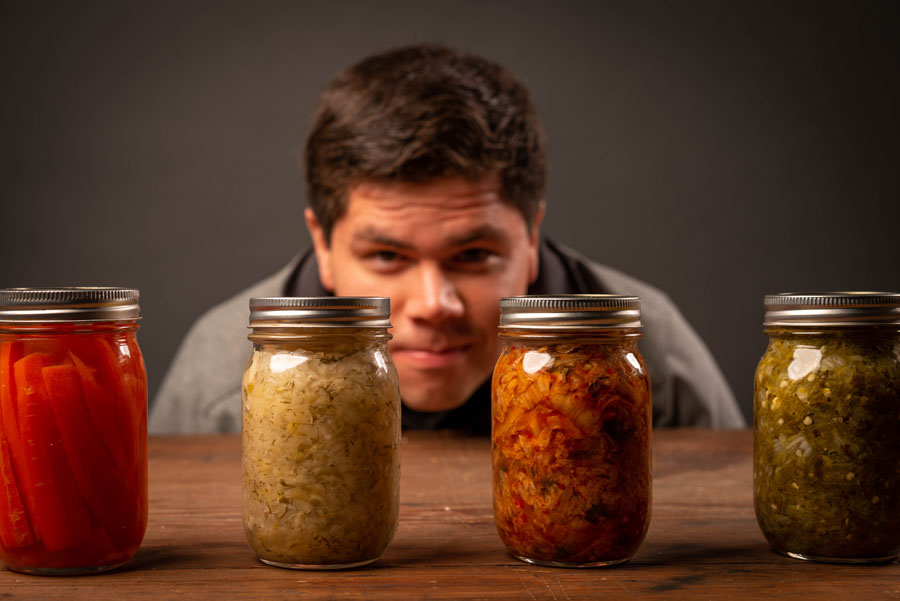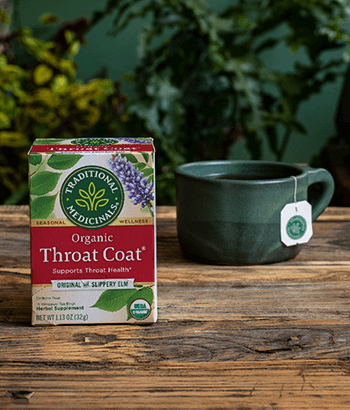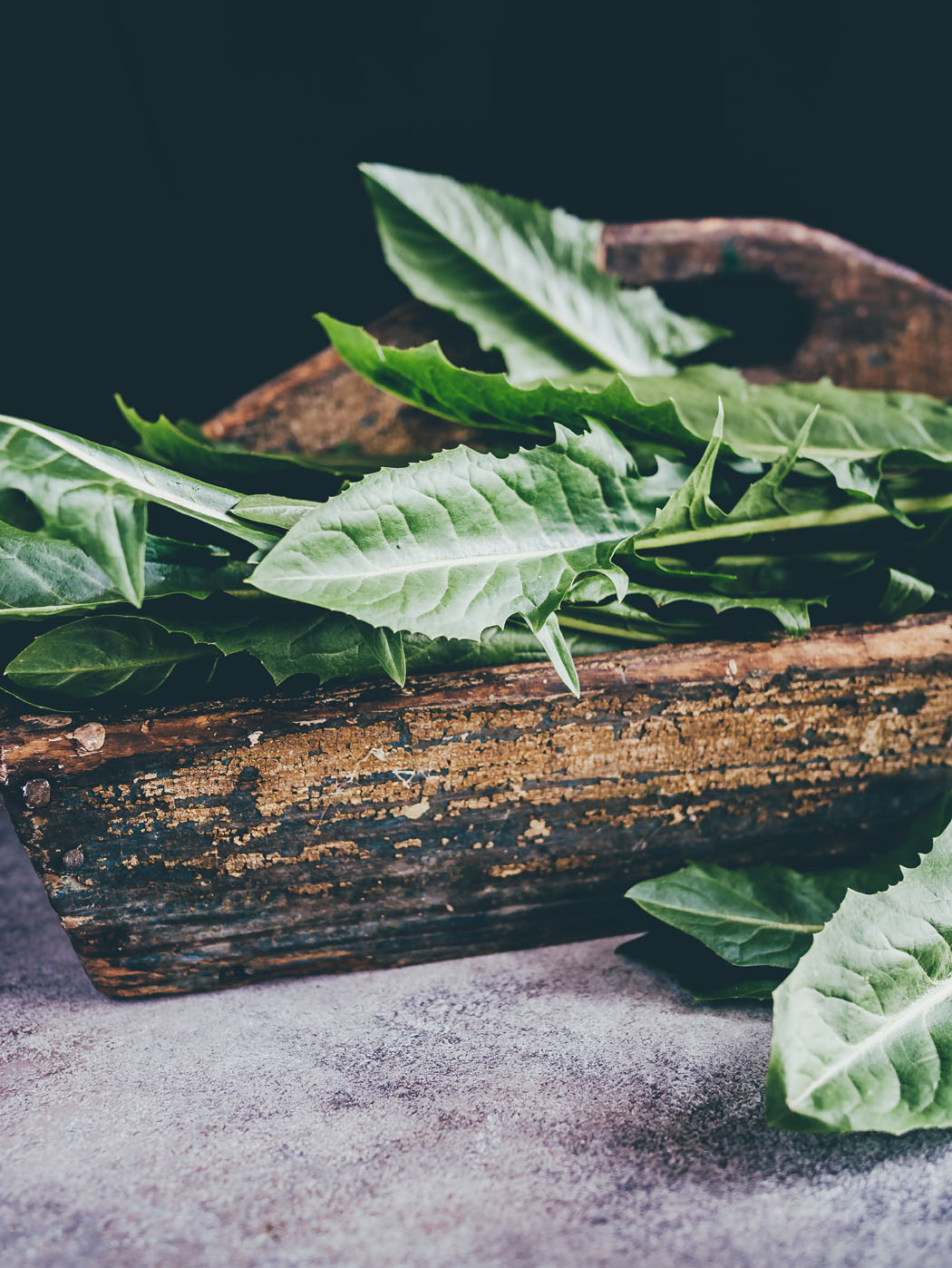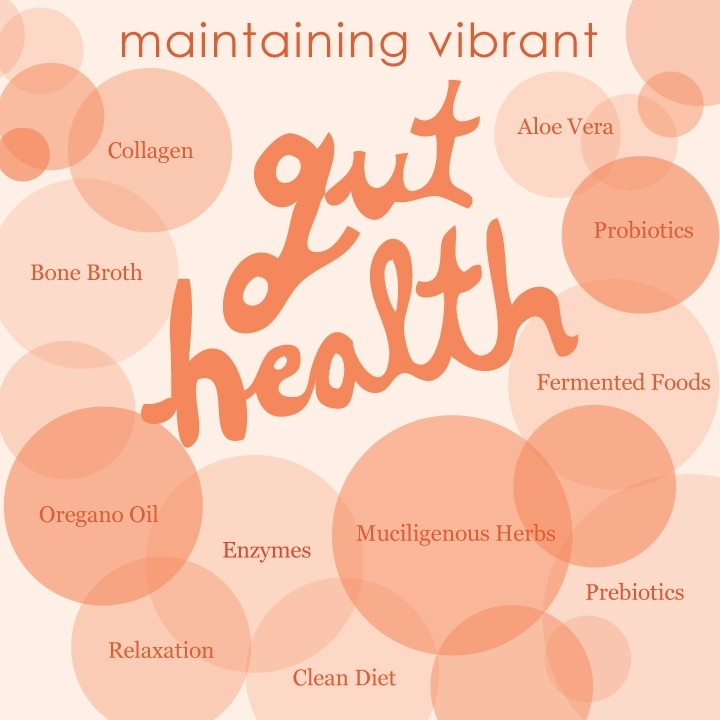The connection between the gut and overall wellness has become increasingly clear. The gut-brain axis, microbiome, leaky gut and gut permeability have become more commonplace terms. Many of the following natural approaches and substances are thought to support the mucosal lining of the GI tract, protect against ‘leaky gut syndrome’, promote a healthy microbiome and aid with nutrient absorption.
Aloe Vera
Aloe vera has traditionally been used to calm irritating skin or help to heal burns. Laterally, consuming aloe vera may help sooth irritation and inflammation in the digestive system. (3) Aloe vera has been shown to reduce abdominal pain and flatulence in patients with IBS. (2)
Bone Broth
Among the many benefits of mythical bone broth, it promotes healthy gut integrity and reduces permeability and inflammation of the gut. Well-made bone broth contains a litany of nutrients that positively impact gut health. This includes collagen, gelatin and amino acids like proline, glycine and glutamine. Read more on Collagen and Glutamine below. (3)
Collagen
Whether we are consuming an abundance of enzyme rich foods, supplementing with enzymes or doing both, enzymes are essential for breaking down and absorbing food! Read more about the world of enzymes.
Fermented Foods
Simply put, cultured or fermented foods help us maintain a healthy balance of gut bacteria, provide enzymes, and aid proper digestion. Sauerkraut, kimchi, any cultured/fermented vegetables, miso, tempeh, kefir, yogurt, beet kvass, kombucha.
Glutamine
Glutamine in one of the amino acids found in bone broth and collagen. In fact, glutamine is the most abundant amino acid and is involved in more bodily metabolic processes than any other amino acid.
Glutamine promotes the integrity of gut mucus by acting as an energy source for the cells lining the intestines and preventing bacterial translocation. Additionally, it is a major fuel source for immune system cells. (5)
Check with your doctor about glutamine supplementation. Glutamine is not recommended for those with a major sensitivity to MSG, those taking antiseizure medications, or individuals with compromised liver/ on a protein restricted diet. (5)



Oregano Oil
Oregano oil is known as a powerful substance and when taken directly creates a burning sensation. Despite its strong mouth-feel, it has been found that oregano oil doesn’t burn or abrade tissues internally. Overall, oregano oil contains A LOT of antioxidants and studies point to its potential anti-biotic, anti-parasitic, and anti-inflammatory action. In addition to candida-combater, oregano oil has also been found effective in killing gut parasites. In one study from 2000, after daily treatment of 600 mg of oregano oil participants experienced a reduction in gut symptoms and tiredness and a majority were ‘cured’. (7) Research is pointing to oregano oil’s efficacy in protecting the gut wall from damage and preventing it from becoming “leaky”. (8)
Mucilaginous Herbs
Muci-what? Mucilaginous herbs have special properties due to the polysaccharides they contain. When put in water they produce a gel-like substance. They have a slippery and mild taste that soothes and protects irritated tissues in the body. This included inflamed mucous membranes and dry skin.
- decrease bowel transit time by absorbing water in the colon and bulking and softening stool
- absorb toxins in the colon
- protect against gastric acidity
- regulate gut flora
- relax and sooth tissues and nerve endings in mucous membranes. (6)
Marshmallow root and slippery elm are mucilaginous superstars. Other slippery herbs include comfrey, fenugreek, mullein, plantain, and psyllium.
Prebiotics
Though probiotics are really popular, we shouldn’t forget about prebiotics! Prebiotics are foods that induce the growth or activity particular bacteria in the gut. By eating prebiotics the composition of the gut microbiome can be affected. Some prebiotic fibers include chicory root, jerusalem artichoke, dandelion greens, garlic, onions and scallions. (3)
Probiotics
More probiotics. Kombucha, kombucha, kombucha. What’s the big deal? It’s been found that a healthy microbial ecosystem in the gastrointestinal tract helps to regulate metabolism and immune function. According to Toribio-Mateas, two key factors that define a healthy gut are diversity and abundance of gut microbiota. Reduced microbial diversity is correlated with pathogenic states and dysbiosis. (9)
So, the idea is that if more healthy microbes are introduced to the body abundance and diversity of gut microbiota is increased, which in turn promotes overall healthy bodily function and decreases the likelihood of a pathogenic state.
The idea behind the gut-brain axis is that there is communication between the brain and gut microbiota. It appears “that dysbiosis in the gut triggers an inflammatory immune response throughout the individual, which feed forward to affect the brain” and possibly increase the risk of mental disorders. (9)
Clean Diet Rich in Dietary Fiber
As the basis for any health endeavor is good water and good food. In general, go for whole, natural, simple meals. For gut health in particular, include plenty of dietary fiber such as leafy greens, avoid inflammation inducing foods and purposefully include anti-inflammatory foods.
Avoid artificial colors and flavors, processed foods, refined sugars and flours, refined and rancid oils, alcohol, and, for many people, dairy.
As the basis for any health endeavor is good water and good food. In general, go for whole, natural, simple meals. For gut health in particular, include plenty of dietary fiber such as leafy greens, avoid inflammation inducing foods and purposefully include anti-inflammatory foods.
Avoid artificial colors and flavors, processed foods, refined sugars and flours, refined and rancid oils, alcohol, and, for many people, dairy.
Foods that cause irritation or bloating can be different for everyone – pay attention to which foods may cause discomfort in you. Foods that can be difficult to digest and contain ‘resistant starch’ include:
Relaxation
We all know stress is an enemy of health. There can never be enough reminders to incorporate and prioritize relaxation into your routine!
Sources
- Sayler, Jessica. 9 Healthy Benefits of Drinking Aloe Vera Juice. Healthline Media. https://www.healthline.com/health/food-nutrition/aloe-vera-juice-benefits accessed Oct 22, 2020
- Hossein, Khedmat et al. Aloe vera in treatment of refractory irritable bowel syndrome: Trial on Iranian patients, J Res Med Sci. Aug 2013. 18(8):732.
- Romeo, Kris. “Gut Healing Superfoods You Should Have on Rotation”. Parsley Health Articles. https://www.parsleyhealth.com/blog/best-gut-health-foods/ accessed Oct 22, 2020.
- Qianru Chen et al. Collagen peptides ameliorate intestinal epithelial barrier dysfunction in immunostimulatory Caco-2 cell monolayers via enhancing tight junctions. Food Funct. 2017 Mar 22;8(3):1144-1151.
- Flesher Mary. “What is Glutamine?” GI Society. https://badgut.org/information-centre/health-nutrition/glutamine/ accessed Oct 22, 2020.
- “Mucilage”. The Naturopathic Herbalist. https://thenaturopathicherbalist.com/plant-constituents/mucilage/ accessed Oct 22, 2020.
- M Force, W S Sparks, R A Ronzio. Inhibition of enteric parasites by emulsified oil of oregano in vivo. Phytother Res, May 2000;14(3):213-4.
- Rowles Alexandra, Wilson Debra. “9 Benefits and Uses of Oregano Oil”. Healthline Media. July 7, 2020. https://www.healthline.com/nutrition/9-oregano-oil-benefits-and-uses#5.-May-improve-gut-health
- Dallmeier Julian. “The Microbiota-Gut-Brain Axis: What, Why, and How to Maintain Gut and Brain Health. Straight From a Scientist. August 8, 2018 https://www.straightfromascientist.com/the-microbiota-gut-brain-axis-from-eubiosis-to-dysbiosis-and-back-useful-biomarkers-for-clinical-treatment/
